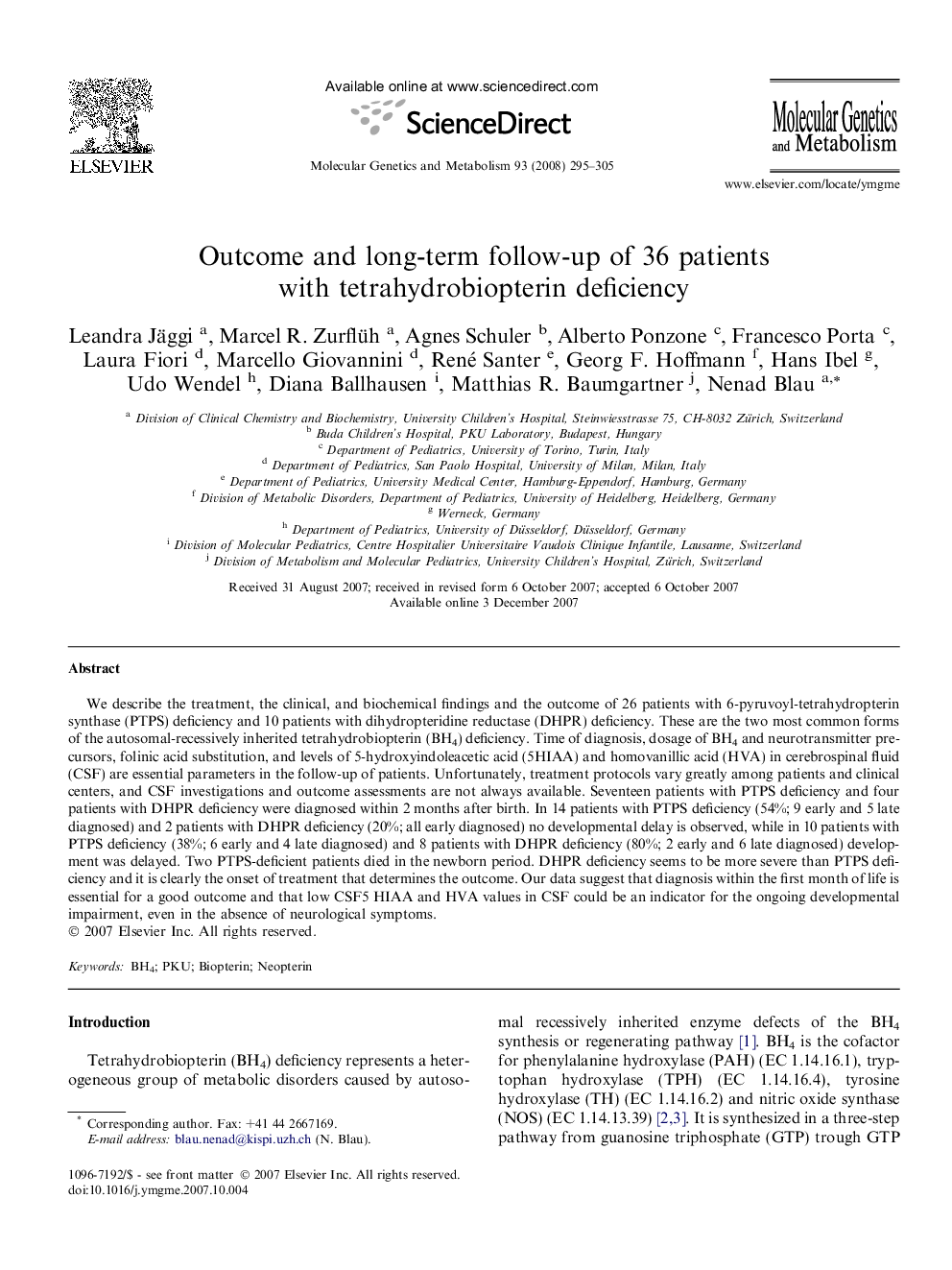| Article ID | Journal | Published Year | Pages | File Type |
|---|---|---|---|---|
| 2000104 | Molecular Genetics and Metabolism | 2008 | 11 Pages |
We describe the treatment, the clinical, and biochemical findings and the outcome of 26 patients with 6-pyruvoyl-tetrahydropterin synthase (PTPS) deficiency and 10 patients with dihydropteridine reductase (DHPR) deficiency. These are the two most common forms of the autosomal-recessively inherited tetrahydrobiopterin (BH4) deficiency. Time of diagnosis, dosage of BH4 and neurotransmitter precursors, folinic acid substitution, and levels of 5-hydroxyindoleacetic acid (5HIAA) and homovanillic acid (HVA) in cerebrospinal fluid (CSF) are essential parameters in the follow-up of patients. Unfortunately, treatment protocols vary greatly among patients and clinical centers, and CSF investigations and outcome assessments are not always available. Seventeen patients with PTPS deficiency and four patients with DHPR deficiency were diagnosed within 2 months after birth. In 14 patients with PTPS deficiency (54%; 9 early and 5 late diagnosed) and 2 patients with DHPR deficiency (20%; all early diagnosed) no developmental delay is observed, while in 10 patients with PTPS deficiency (38%; 6 early and 4 late diagnosed) and 8 patients with DHPR deficiency (80%; 2 early and 6 late diagnosed) development was delayed. Two PTPS-deficient patients died in the newborn period. DHPR deficiency seems to be more severe than PTPS deficiency and it is clearly the onset of treatment that determines the outcome. Our data suggest that diagnosis within the first month of life is essential for a good outcome and that low CSF5 HIAA and HVA values in CSF could be an indicator for the ongoing developmental impairment, even in the absence of neurological symptoms.
